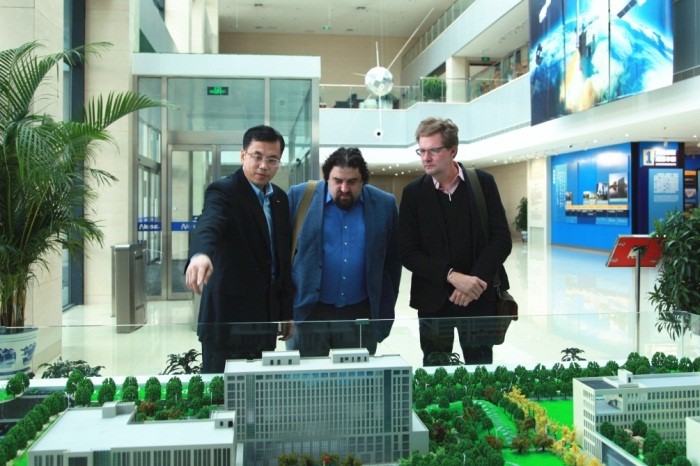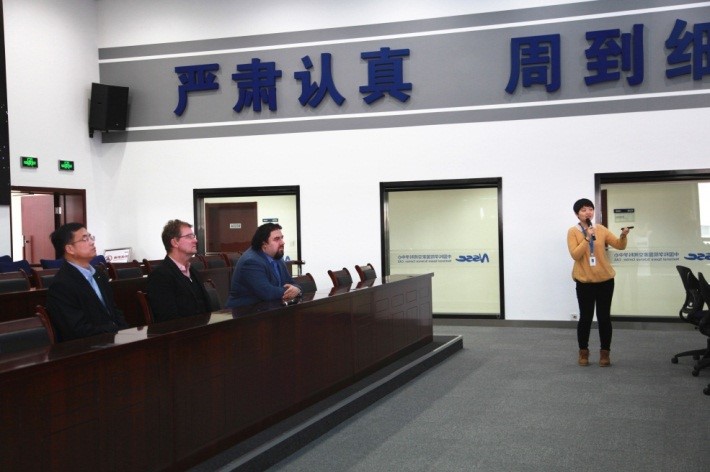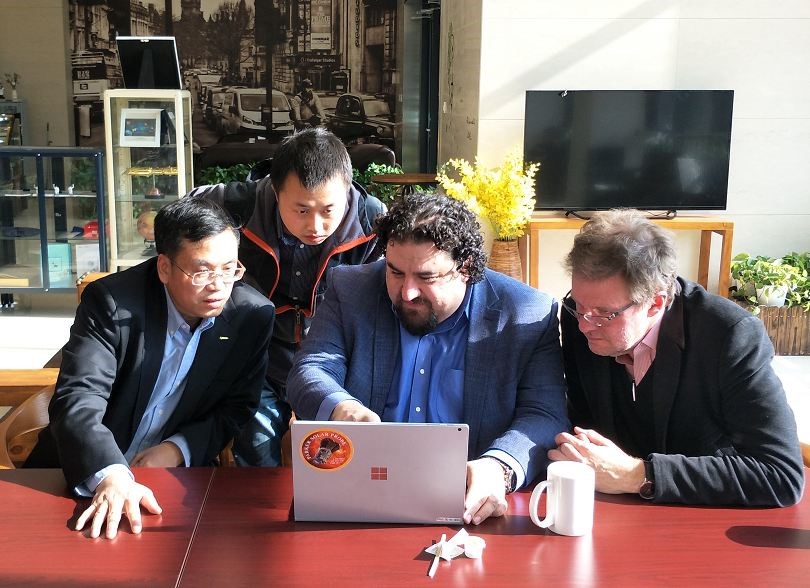Prof. Stuart Bale and Associate Prof. Justin Kasper Visited NSSC
On 24 Jan, 2019, at the invitation of Prof. WANG Chi, Director General of NSSC, Prof. Stuart Bale from Space Sciences Lab of University of California, Berkeley and Associate Prof. Justin Kasper from University of Michigan visited the NSSC Headquarters in Huairou.
They were invited to the exhibition commemorating the 60 years anniversary of NSSC. Prof. WANG Chi introduced the history of the institute and touched upon the featured disciplines including space physics and space weather study and forecasting, space environment exploration and application, microwave remote sensing technology, space electronics and information technology, as well as the major projects that NSSC has engaged during the course of history.
They also visited the Space Mission Operation Center and the Lab of Space Environment Exploration, where they are guided for a close look of the Space Electron Facilities and the calibration system for Plasma Instruments.
At the end of the technical visit, they congratulated the progress NSSC has achieved in the recent years and deemed that space science in China is entering a golden development stage.
A discussion was arranged to explore possible future collaborations based on the ongoing academic exchanges. Both parties touched upon the issues of the joint study of the data of Parker Solar Probe, young scientists exchange program and joint post graduate program etc.
Stuart Bale is a well-known astrophysicist from the Space Sciences Laboratory (SSL) at UC Berkeley. He joined the Physics faculty in 2004 and is the Director of SSL. He is a recipient of the 2003 Presidential Early Career Award for Scientists and Engineers (PECASE).
Justin Kasper receives his PhD at MIT and is Associate Prof. at College of Engineering of University of Michigan. He currently leads the SWEAP Investigation, an international team of scientists and engineers building sensors that will collect samples of the Sun for the NASA Solar Probe Plus spacecraft, a mission of exploration that will make history in 2018 as the first human-made object to plunge into the solar corona. He is also the first group of young scientists selected by the National Academy of Sciences of U.S.A to attend the First CAS-NAS Forum for New Leaders in Space Science in 2014.

Introduction by Prof. WANG Chi

Visiting the Space Mission Operation Center

Discussion


